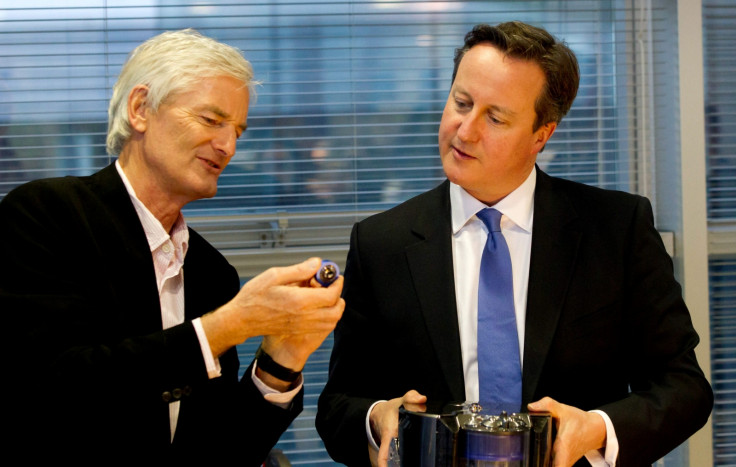Sir James Dyson blasts Theresa May over 'short-sighted' foreign student plan

Sir James Dyson has blasted Theresa May over her plan to force foreign students to leave the UK upon graduation.
The prominent inventor claimed that the move would condemn the country to "long-term economic decline".
The Home Secretary is reported to want a future Conservative government to work towards "zero net student migration" by making sure that foreign students leave Britain at the end of their visa.
Dyson, who is best known for his bagless vacuum cleaner, claimed the proposal was a play to "swing voters".
"Open borders a little too open. Not enough control. Take, take, take. Some of that may well be true," he wrote in the Guardian.
"I am not an expert. But I do worry about Britain's ability to make, make, make. Make engineering breakthroughs. Make scientific progress. And, yes, make money for UK plc.
Dyson added: "Theresa May's latest ploy to swing voters concerned about immigration magnifies my worry: she wants to exile foreign students upon qualification from British universities.
"Train 'em up. Kick 'em out. It's a bit short-sighted, isn't it? A short-term vote winner that leads to long-term economic decline. Of course the government needs to be seen to be 'doing something'."
The entrepreneur argued that students are drawn to our universities because they are among the best in the world and stressed that the UK's borders "must remain open to the world's best".
"Bright sparks are drawn to the UK for good reason – our universities are among the best in the world. Particularly for science and engineering," he said.
"Yet the Home Office wants to say cheerio to these sharp minds as soon as their mortarboards land on college lawns.
"The moment research is finished students are forced back to their homelands, from where the home secretary is happy to allow them to apply for jobs in Britain. Not exactly motivating. Not exactly practical."
The debate over immigration in the UK has been ramped up over the past year as Ukip won the European Parliamentary elections in September and secured two MPs after Douglas Carswell and Mark Reckless defected from the Tories.
In addition, the Prime Minister David Cameron was criticised after official figures revealed that net long-term migration to the UK was more than double the amount he promised to reduce it to.
The Conservative leader had pledged to cut number to less than 100,000 by May 2015.
But the Office for National Statistics (ONS) revealed that it rocketed to 260,000 in the year to June, a 42% hike on 182,000 a year before.
Immigration remains of the public's most important issues as it consistently ranks above the economy, according to YouGov.
The pollsters said voters have put it above or tied with the economy in every survey conducted by the organisation since May
"From May to December immigration was seen as the most important issue facing the country, except for on three occasions when it was tied with the economy," said Will Dahlgreen, a data journalist at YouGov.
"Although immigration began to narrow the gap at the end of 2013, 2014 is the first year since 2010 when the economy has not been the top issue; immigration had an average lead of one point over the whole year, compared to a deficit of 18 in 2013 and 32 in 2012."
Senior Labour MP and former welfare minister Frank Field warned that the main political parties could "break up" at the general election over the issue.
The Birkenhead MP compared the issue to the reaction against the Corn Laws, when the urban working class opposed 1815 measures to artificially inflate the price of the grain.
"Immigration has the power that the Corn Laws did, to break up parties," Field told the Daily Telegraph.
"Many MPs will be making personal commitments on this. I shall be one of them. Others will too. They will want to survive."
"The temporary restriction of immigration must be the cornerstone of our renegotiation.
"This election will be the beginning of the break up, but it is the election after next where the electorate will have a clear view of which parties supported it and which did not."
© Copyright IBTimes 2025. All rights reserved.






















